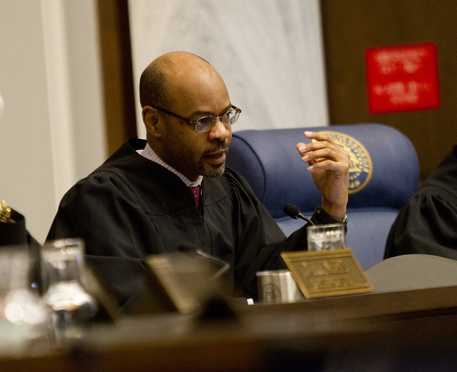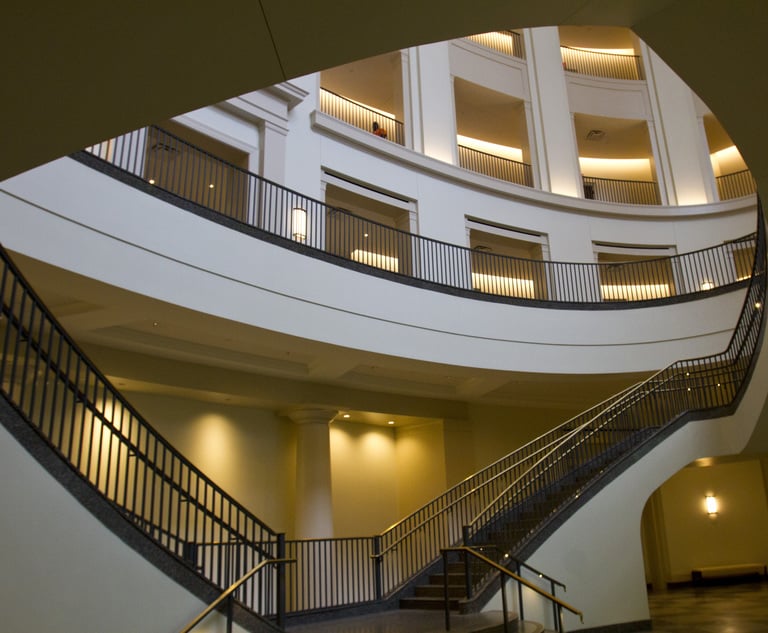Less than 72 hours after Georgia’s Public Defender Council issued a plea for courts across the state to stop requiring lawyers to make personal appearances at county jails, the chief justice of the Supreme Court of Georgia began issuing orders.
Chief Justice Harold Melton has issued five orders clarifying and amending trial rules governing videoconferences for the state’s probate, juvenile, magistrate, state and municipal courts for the duration of the statewide judicial emergency caused by the COVID-19 pandemic. Melton issued a similar order for the state’s superior courts last Friday.
The orders address both criminal and civil proceedings. The rules expand the use of telephone conferencing to include videoconferencing and waive stringent remote conferencing notice requirements.
The amended rules also encourage Georgia courts to livestream proceedings via the internet in order to give the public access to those hearings.
“The purpose of these orders is to enable all our courts to continue conducting essential court business while protecting citizens, judges, lawyers, and others from unnecessary exposure to the coronavirus,” Melton said.
In his orders, Melton addressed potential objections to remote proceedings raised by a party or a member of the public, directing that the courts “shall sustain or overrule such objection” prior to conducting the proceeding.
The chief justice also strove to balance the social distancing requirements put in place to slow the virus’ spread with constitutional mandates that Georgia citizens have a right to open courts. Notice that a hearing is being conducted remotely or livestreamed should be posted on websites set up by the court, the clerk of court, the judicial councils or the local bar association.
Since early March, Melton has taken the lead in coordinating the courts’ response to the coronavirus and on March 14 declared a statewide judicial emergency giving the courts directives to dramatically curtail all but essential operations and consider adopting measures that would limit interpersonal contact.
Last Friday, after COVID-19 began infecting inmates, most of them trusties, at the Fulton County Jail, Omatayo Alli, executive director of the Georgia Public Defender Council, sent a letter to members of the state’s criminal justice community, including the leaders of the state judicial councils, warning them that requiring public defenders to make personal appearances at jail across the state heightened the risk for the transmission of the virus.
Alli urged the courts still requiring personal appearances—although she did not identify them in her letter—to implement alternatives “as soon as possible” to limit the risk to lawyers, clients, court officers and incarcerated defendants. She also asked judges who determined a public defender must be physically present to represent a client to contact the council or their circuit public defender in advance “so all parties may confer on appropriate precautions.”
“The threat presented by coronavirus is simply too great, both to individuals and to the overall justice system, to do otherwise,” Alli wrote.
NOT FOR REPRINT
© 2024 ALM Global, LLC, All Rights Reserved. Request academic re-use from www.copyright.com. All other uses, submit a request to [email protected]. For more information visit Asset & Logo Licensing.


 Chief Justice Harold Melton, Supreme Court of Georgia. (Photo: John Disney/ALM)
Chief Justice Harold Melton, Supreme Court of Georgia. (Photo: John Disney/ALM)






